For every woman over 50, grief often wears the heavy cloak of sadness and loneliness. These emotions can be debilitating, arriving unannounced through life’s harshest passages like loss, estrangement, and illness, making many women feel lonely. Yet, it is nothing short of a marvel when we, as women, manage to find thoughts, if only for a few moments, and flickers of joy in the midst of sorrow.
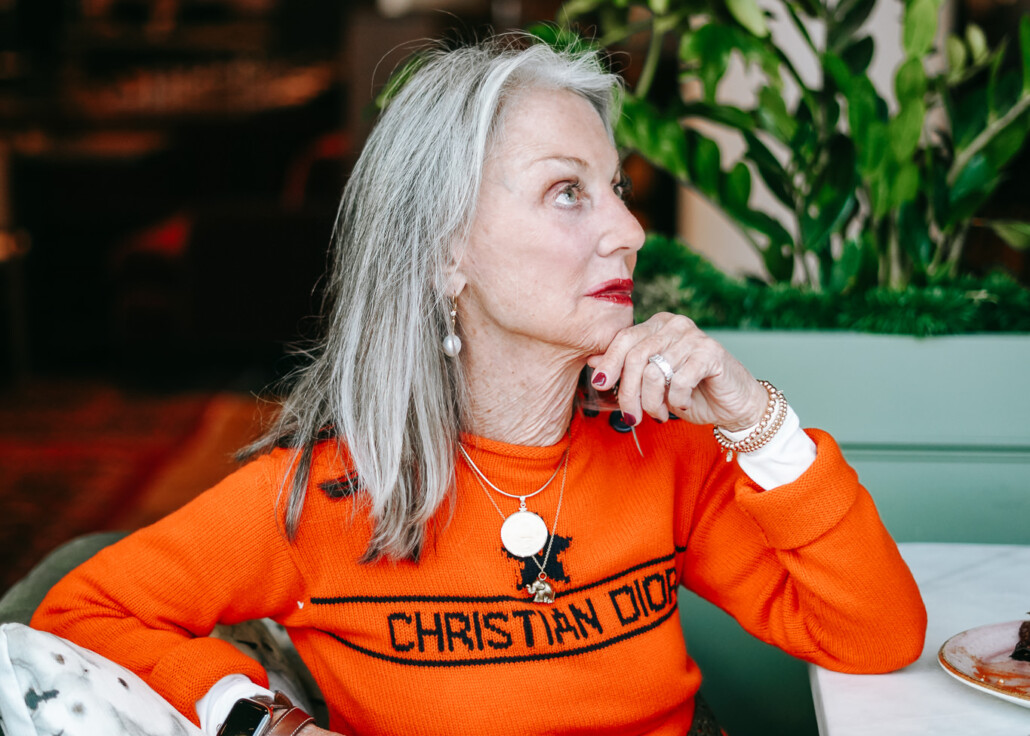
But darling, it is just as essential to allow our authentic emotions to flow freely. I grieve and I cry. My soft tears appear daily, then vanish just as suddenly, followed by a sigh, a deep breath, and the quiet courage to continue on with my day. Grief demands space and so does healing. It is through this process that many of us realize the profound impact of these emotions on our lives.
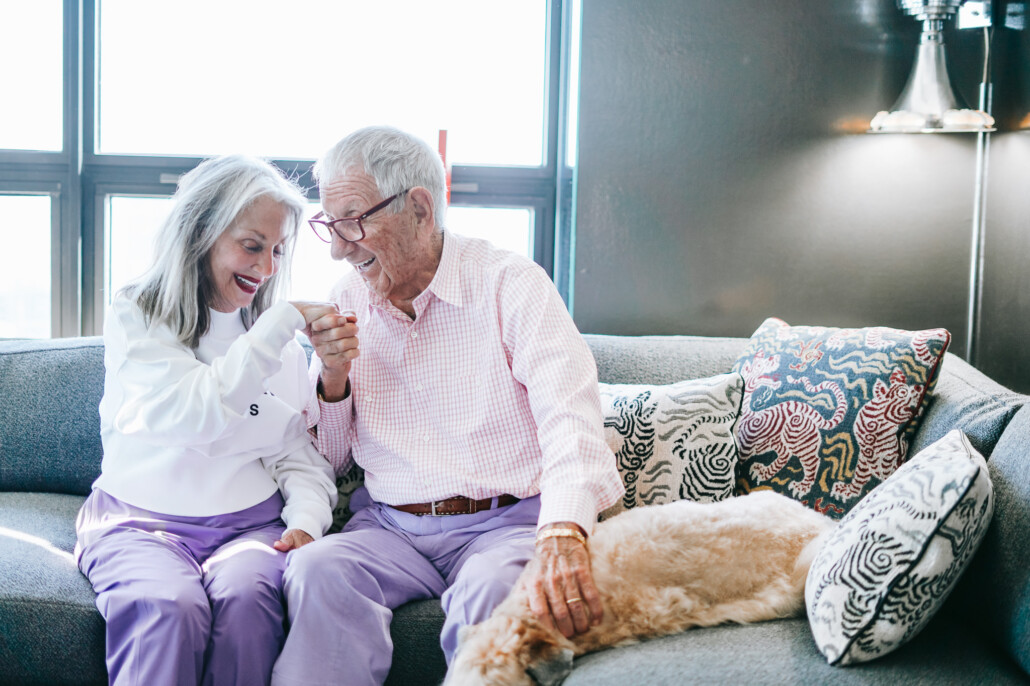
Introduction to Grief
Grief is a natural part of the human experience, touching everyone at some point in their lives, regardless of age or background. For ages, social interaction has been a fundamental aspect of survival and well-being. It is a complex and highly individualized process, manifesting in myriad ways—sadness, anger, and profound loneliness. Grief can be triggered by various life events, such as the loss of a loved one, significant changes in life circumstances, or a major health diagnosis.
For older adults, the journey through grief can be particularly challenging. The increased risk of losing friends and family members, coupled with the experience of chronic loneliness, makes them especially vulnerable. Being socially isolated can exacerbate the negative effects of grief, making it even more essential to maintain social connections and engage in activities that promote social interaction.
Spending time with others—whether it’s a family member, a friend, or a support group—can be a lifeline, helping to cope with grief and reduce feelings of loneliness. Engaging in physical activities, such as walking or exercise, can also alleviate symptoms of grief and improve overall well-being. It’s crucial to acknowledge that grief is a process that takes time, and being patient and compassionate with oneself is key to navigating this journey. Initiating a conversation can also be a powerful way to connect and find support during this difficult time.
Grief of a Great Love
Like some of you, I find myself consumed by grief, grief born of love. I am mourning my dearest companion, my beloved husband, my “Ultimate Concierge”, who is slowly slipping away due to vascular dementia. The conversations we once shared, full of wit and warmth, are now shadows. My North Star has dimmed with this loss.
Our once spirited conversations, filled with wit, wisdom, and warmth, have become echoes in my mind—whispers of a life we once lived. I replay them like cherished recordings I dare not forget. He was my anchor, my safe harbor, my guiding light for my entire life. Now, I am left navigating the world with a compass that spins without direction. The silence between us is deafening.
This form of grief is cruel beyond measure. It is the grief of presence without connection, of love with no dialogue. It is the heartbreak of holding the hand of the one you love most in the world while knowing they are slowly drifting beyond the reach of your voice and your touch. I realized that I grieve not just who he is becoming, but all that we will never again share. That, darling, pierces me daily with a thousand tiny cuts the world cannot see.
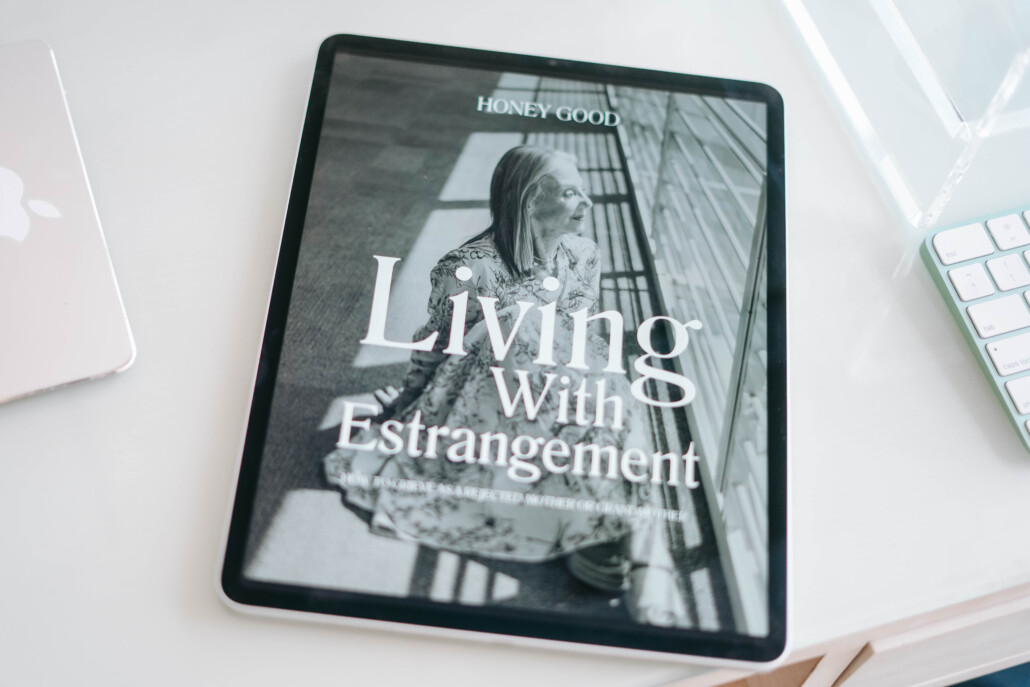
Grief of Estrangement
In addition to the loss of my husband’s spark and warmth, I have suffered a different kind of death: emotional estrangement from my adult daughters and grandchildren. Adult child estrangement, a silent epidemic, affects millions of mothers and grandmothers across the world, yet so few speak of it.
Two of my closest friends have moved away, and another escapes winter in a warmer climate. I often feel a deeper loneliness because of their absence, though I remain surrounded by caring acquaintances and family through marriage. My grandsons and daughter-in-law from the Good family are loving and attentive. Still, I miss my daughters. I miss my grandchildren. I miss what could have been. Elderly people are particularly vulnerable to loneliness and social isolation, which can have significant health impacts. This social isolation has taken a toll on my mental health, leading to feelings of depression and anxiety, contributing to poor mental health.

Understanding Social Isolation
Social isolation is more than just being alone; it’s a state of being physically or emotionally disconnected from others, leading to feelings of loneliness and disconnection, especially among older people. Chronic social isolation can have severe consequences on both mental and physical health, including an increased risk of depression, anxiety, and cognitive decline.
Various factors can lead to social isolation, such as aging, disability, or significant life changes that limit opportunities for social interaction. Older adults are particularly susceptible due to the loss of friends and family members and reduced mobility. Societal factors, such as lack of access to transportation, limited social services, and ageism, can further perpetuate social isolation. Increasing social contact through community programs and personalized interventions can positively influence mental health outcomes and potentially mitigate these risks.
Recognizing the signs of social isolation—feeling lonely, disconnected, or withdrawn—is the first step in addressing it. Building and maintaining social relationships is crucial. Joining a club or group, volunteering, or participating in community activities can help mitigate social isolation. Technology, such as video calls or social media, can also provide opportunities for social connection and help reduce feelings of loneliness.
Coping with Loss
Coping with loss is a crucial aspect of managing loneliness, especially for older adults who may have experienced the heart-wrenching loss of a spouse, family member, or dear friend. The grieving process is a complex journey, often leading to profound feelings of loneliness and social isolation if not addressed with care and compassion.
Seeking support from family members, friends, or support groups can be a lifeline during these challenging times. Sharing your feelings and experiences with those who understand can provide comfort and reduce the heavy burden of loneliness. Engaging in activities that promote social connection, such as volunteering or joining a club, can also help you cope with loss and build new, meaningful relationships.
It’s essential to prioritize self-care during this time. Allow yourself the grace to grieve and seek professional help if feelings of loneliness and grief persist. Remember, darling, you are not alone in this journey. There are people and resources available to support you through this difficult time.
The Power of Hope
What keeps me moving through the grief? One word: hope.
Hope is my closest friend. She walks beside me through every shadowed valley and sits quietly with me during sleepless nights. She doesn’t speak loudly… no, she whispers, gently, persistently, reminding me to hold on, to breathe, to believe. Hope is in my bones, in every heartbeat, and in a thread that binds me to possibility.
My personal motto has become my daily guide: Stay aware, stay curious, and find delight in the smallest of wonders. A bird’s song while I am on a walk. The laughter of a stranger passing by. A breeze that feels like a blessing. These are the tender mercies I seek out, even in the darkest hours. Spend time on activities that foster hope and resilience. What is your positive motto when the chips are down that keeps you in the hunt of life? Take out your journal and write your thoughts down. Find hope in the present moment by being mindful of these small joys.
I am deeply blessed with dear friends who span oceans and time zones; soul sisters who check in with a simple “Thinking of you,” or surprise me with a letter, a shared memory, or an invitation to laugh. Each text, every call, every email is like a candle lit in a darkened room. I am reminded that though I may walk this journey of grief, I am never truly alone. Hope makes sure of that.

Women Need Women
Darling, after 50, women need women more than ever. One close friend nearby—one kindred spirit—is invaluable. We also must not overlook the value of acquaintances either. They are part of the mosaic of our social well-being. In our society, the impact of societal structures on loneliness can be profound, especially as we age. Feeling cut off from society can lead to increased vulnerability and health issues, making community and social interactions essential remedies for isolation.
When my dear friend Emily visited from out of town, she said simply, “You need a hug.” And she was right. Her presence softened my tears and her absence, once she left, made it clear: I need an Emily in my backyard.
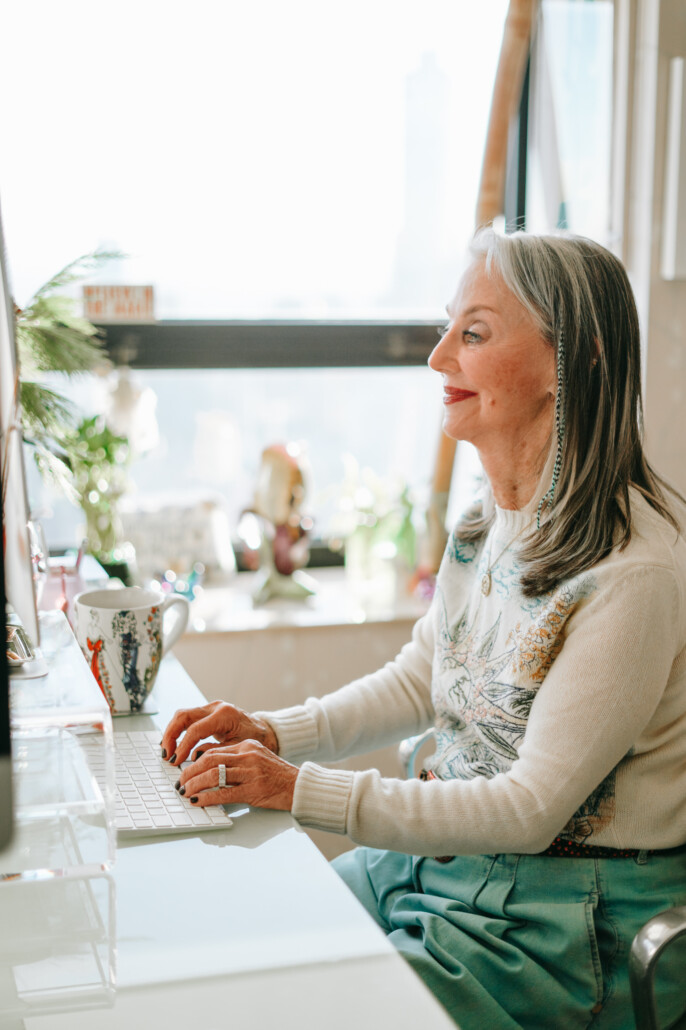
Sisterhood, Wherever It Blooms
I’d like to honor the women who have filled the role of sisters in my life: Emily, Gail, Janice, Judy, Cherye, Carolyn, Sheila, Susan, Phyllis, Liz, Florence, and my daughter-in-law, Jami Good. These women are golden threads in the tapestry of my life. I call on them in joy and in grief. My good friend Barbara passed away, and I mourn her loss. Missing from this cherished list are my estranged daughters. A silent ache remains.
Now, I continue to nurture friendships old and new. I have soul sisters in South Carolina, Honolulu, California—women with whom I’ve walked life’s winding path. One such friendship, with Janice, blossomed in the most unique way. Janice and I went through school together but were not in the same crowd. She was the most popular girl in school. Fast forward many years later, I noticed her name pop up on HoneyGood when she wrote me a message. I answered and discovered she had read 99% of my blogs over the years!
I reached out to her and we have emailed our thoughts to one another almost weekly for over a year! A Diary of two women. She has become a sister I always wanted. She lives in South Carolina and we write to each other weekly. “Your soul sister from the North,” I sign. She replies, “Your soul sister from the South.”
Through these experiences, I have learned the importance of forming new friendships. Meeting new people and making new friends has enriched my life in unexpected ways.
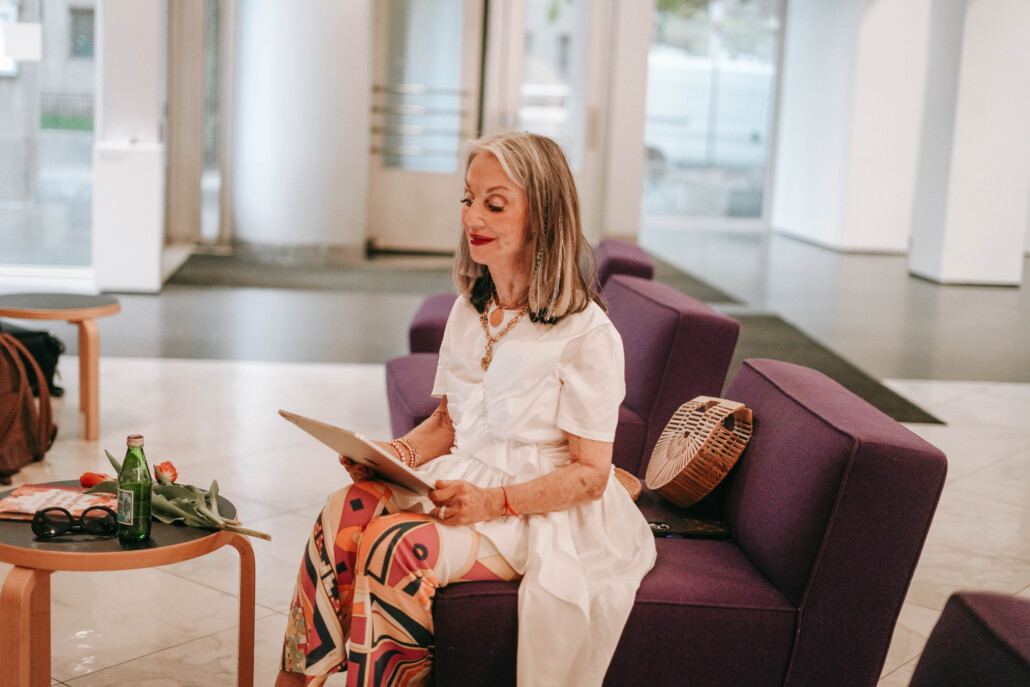
The Changing Tide
Life, as it will, changes course. A tsunami of grief (estrangement and dementia) has tossed me ashore. Yet, like the sea, I too am capable of change. I will ride a new wave and I must live life fully despite these challenges. Moving on from past regrets is essential to embrace new opportunities.
Technology offers connection across miles. Thank goodness for phones, emails, Zoom, but they cannot replace having a cherished friend close by. With Emily and Jami gone, I know: I must seek new friendships in my hometown.
Creating Close Connections After 50
If you’ve recently moved, retired, lost your spouse, or are living with estrangement like me, you might feel adrift. Most people experience loneliness, particularly after the age of 50, and it can feel exacerbated when lacking family connections. Let me tell you what I’ve learned: deep friendships require time and effort. A researcher once claimed it takes eleven three-hour meetings within six months to transform an acquaintance into a close friend. Well, I’m not a robot. I’m a creative, soulful woman. I believe women know when they’ve met a kindred spirit. The connection is instant, and often mutual.
The formula for friendship is simple yet profound: duration and continuity. These build trust and with trust comes vulnerability, love, and loyalty. Planning your activities for the week can help foster these connections by creating a routine that enhances emotional well-being.
Creating a Support Network
Creating a support network is vital for older adults to combat the pervasive feelings of loneliness and social isolation. A robust support network can consist of family members, friends, neighbors, or community groups that provide emotional support and a sense of social connection.
Joining a social club, volunteering, or taking a class can be wonderful ways to meet new people and build lasting relationships. These activities not only provide opportunities for social interaction but also add a sense of purpose and fulfillment to your life. Technology, such as video calls or social media, can also help you stay connected with loved ones and build new relationships, even from a distance.
Having a strong support network can help you feel less lonely and more connected, which is essential for your overall well-being. Remember, darling, building and maintaining these connections takes time and effort, but the rewards are immeasurable.
Who She Is
I dream of a new close friend who mirrors me. A person who wears no armor, who has blossomed into her second flowering, whose spirit is luminous and unshakable. She’s not defined by labels or fashion, but by depth, authenticity, and wisdom. She knows that life is not declining, but rather it is expanding! Maybe, just maybe, I will find her. She could be a mother, embracing her multifaceted identity and combating loneliness through her various roles.
Hopefully, at some point, I will take the initiative to find her in my home town. My ultimate concierge always said,
“Nothing good happens by accident.When something is important—take your time.”
Grief as a Friend
Grief, darling, is not just sorrow. It is a sacred testament to love; a reflection of how deeply we have lived, how fiercely we have loved, and how profoundly we have lost. It is the soul’s way of saying, “That mattered.” Whether you grieve a lifelong partner slipping into silence, a treasured friend lost to time or distance, or an estranged child whose absence echoes louder than any words, know this: your grief is not weakness. It is remembrance, and it is pain. The emotional and psychological distress caused by grief can be overwhelming, but it is also a testament to the depth of your love and connection. Many hear and acknowledge these feelings of invisibility and loneliness, as they are widely shared and recognized.
Grief, as unbearable as it may feel, is proof that your heart has known great beauty. It arrives in waves, some gentle, some with force enough to knock the wind out of your spirit. Even in its most turbulent form, grief holds space for healing, for learning, for grace.
And, yes, grief has a twin: Joy. They coexist, as odd as that may sound. You may cry in the morning and laugh by afternoon. You may feel the ache of absence while your heart swells with gratitude for a memory that floats to the surface. This is not madness; this is the human experience in its most honest form. Allow yourself to sit with grief, but do not let her silence the voice of joy. They are both part of your story, and both deserve a seat at your table.
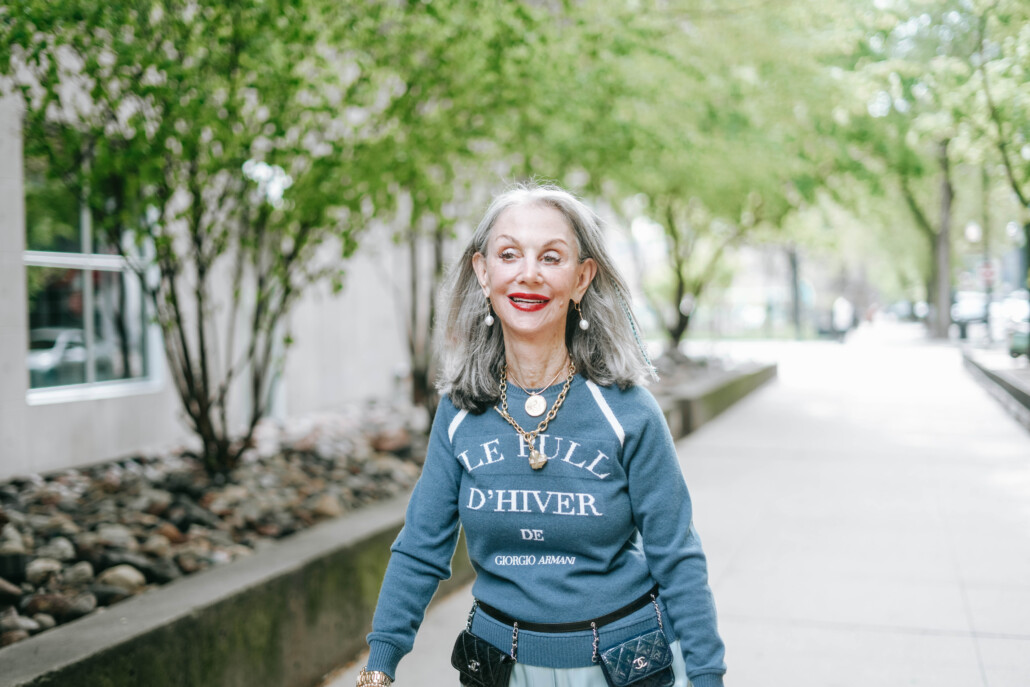
Building Resilience
Resilience is the ability to cope with and adapt to challenging life circumstances, including grief, social isolation, and loneliness. Building resilience requires a combination of internal and external factors, such as a positive mindset, social support, and access to resources. A positive and engaging lifestyle is crucial in building resilience, as it contributes to emotional well-being and social connections.
Engaging in activities that promote mental and physical well-being, such as exercise, meditation, or creative pursuits, can help build resilience. Developing a growth mindset—embracing challenges and viewing failures as opportunities for growth—can also enhance resilience. Social connections and relationships play a critical role in building resilience, providing emotional support, practical help, and a sense of belonging.
Older adults can build resilience by staying engaged in activities they enjoy, maintaining social connections, and seeking help when needed. It’s essential to recognize that building resilience is a process that takes time, effort, and patience, and it’s okay to ask for help along the way. By building resilience, individuals can better navigate life’s challenges, including grief, social isolation, and loneliness, and improve their overall well-being.
Prioritizing Self-Care
Finding Meaning and Purpose
Finding meaning and purpose in life is essential for overall well-being, particularly in older adulthood. Meaning and purpose can be derived from various sources, such as relationships, work, hobbies, or volunteering. Engaging in activities that bring joy, fulfillment, and a sense of accomplishment can help individuals find meaning and purpose. Research findings from a national sample of older adults highlight the importance of these factors in mitigating loneliness and social isolation.
Social connections and relationships can also provide a sense of purpose and belonging, which is critical for older adults. Reflecting on values, goals, and priorities, and aligning them with current circumstances, can help older adults find meaning and purpose. It’s essential to recognize that meaning and purpose can evolve over time, and it’s okay to explore new interests and passions.
Finding meaning and purpose can help individuals cope with grief, social isolation, and loneliness, and improve their overall mental and physical health. By finding meaning and purpose, older adults can live a more fulfilling and satisfying life, making the most of their golden years.
Grief Leads to New Beginnings
When Emily flew in to give me that hug, I felt a sacred connection, intimacy, support, and safety. My stress melted away. Emily is the essence of a true friend. Will I find that again in Chicago? Only time and effort will tell.
One thing is certain: we women are not meant to grieve alone. We are meant to lift one another, to hold hands as we navigate this unexpected chapter. And maybe, just maybe, in the ashes of grief, we find the seed of new beginnings. Over the past few years, I have reflected on these evolving feelings of invisibility and the importance of social connections.
Amen, amen.

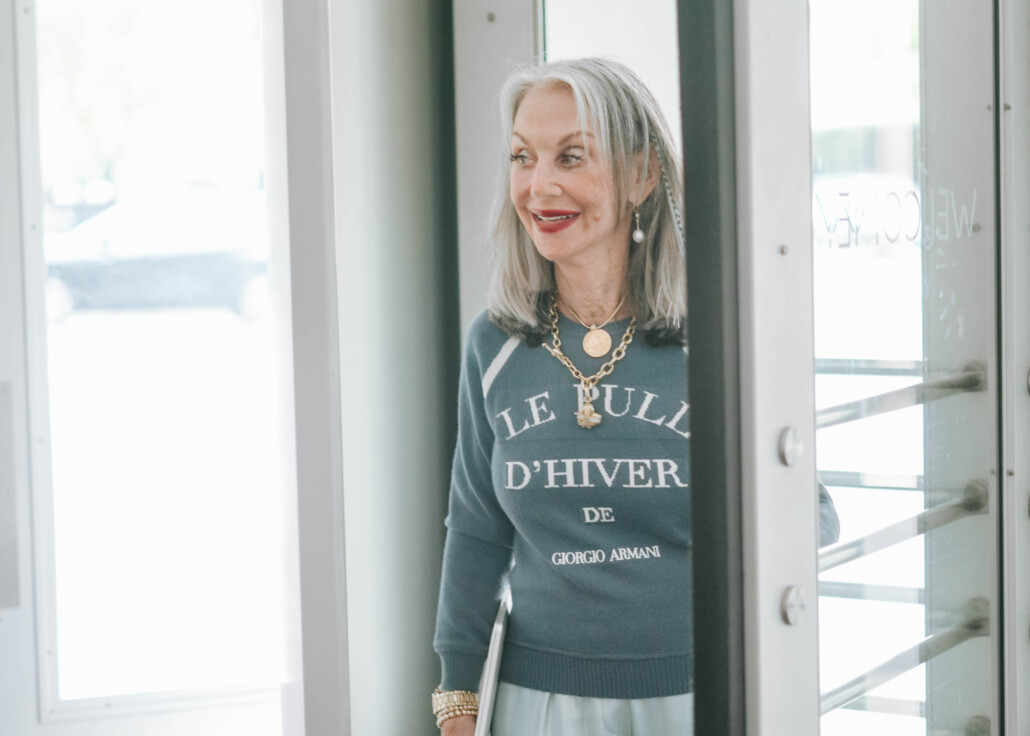
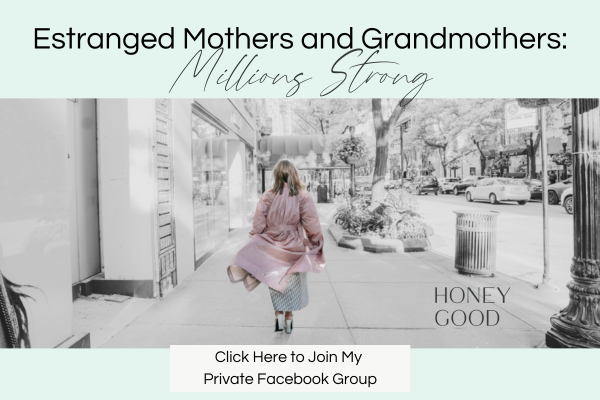
I can’t tell you how much I identify with you as I have been the caregiver for my husband for the past two years from his Spinal Cord Injuries due to a motorcycle accident. Our only daughter (age 30) has no real contact for1 yr blaming me for all kinds of reasons. Not only am I grieving my husband (paralyzed & on trachea/ventilator) at home but alone without contact from our daughter.
I feel your pain. As everyone tells me, ” Don’t forget to take care of yourself,” I am passing on the same advice to you. I seem to forget that it is important. But, it is. So, let’s both try together. Warmly, Honey
Wonderful article and food for thought. Thank you for sharing your insight.
Thank you for taking your time to thank me. I am most appreciative. Happy Spring. Warmly, Honey
Dear Honey, thx for your honesty in sharing your difficult journey. Know that I’m walking beside you as I, too, am losing my husband to dementia. Hope, resilience, small pleasures gifted by nature & friendships keep us going.
Hi Maria, I am glad you are both in the Islands. It makes life more joyful. I am sorry you are going through the pain of this terrible disease. Shelly still tells me during the day and before we go to sleep how much he loves me. I still have him. Happy Spring. You are an empowered and loving woman. Keep me in the loop. Warmly, Honey
Dear Honey,
I so feel your words. I love how so many of my thoughts, feelings are summed up so beautifully by you. Thank you.
I have just come out of my husband’s health issues of 5 years -he is still dealing with a couple of things but the life threatening one is ok for now. Took us all over and forever grateful.
I have also began to finally face up to years of abusive by my adult step-daughter. I only use the term stepdaughter now because I have had to remove myself from any dealing with her. 25 years of tears and heartache is enough. I did not have the strength to accept that I was always the blame and I think to some degree my husband was ok with that. He can not seem to deal with her.
Anyway, thank you again for talking abut grief we all have to deal with.
All the best,
Leslie
I am so glad your hubby is on the roads to recovery. I am glad you are surrendering to the toxicity. It took me over 8 years to get to the same point where you are. Enough is enough. Right? Happy Spring. Warmly, Honey
My husband has dementia. It is a very very hard thing to navigate. I have grief and anger all the time. I wish for the past and fear the ongoing and future. Our children and grands live 4-5 hours away. I miss them terribly, especially under these circumstances. Thank you for sharing.
Yes, it is hard to navigate. I am sorry you are going through this, too. I wish for the past and fear the ongoing and future, too. These are natural feelings and eventually we will become to accept. It is thought provoking that I have no anger. I am just always, sad. But, I know anger is a natural feeling in our situation. Find time to take care of yourself. Warmly, Honey
I am ashamed of your estranged family. God put us in a family and we must be grateful for many reasons. Challenges do arrive, but family is family and we must overcome. You never abandoned your own mother, quite the opposite, you cherished her right to the end of her life. And, please know, Honey, I am so sorry for your “loss” of your husband to dementia. You expressed his being there, but not being there. How very sad.
Think of the positive side: that your daughter-in law is with you. God bless her.
I am ashamed of them too. There actions are beyond my comprehension. I grew up loving my family and that is what I miss- the warmth of a family.Thank you for reaching out to me. I am most appreciative. Happy Spring! Warmly, Honey
Oh my! Shocked to hear about your “ ultimate concierge “. I read he had issues, but this is a different level. A terrible disease for him and you , my brother suffered for a year before his passing. You are such an I credible role model and represent so many of us older gals, with your insight and unique way of communicating. Prayers that your daughters will come. Back, you have done all you can. They need to realize how precious life is and how quickly it passes and changes. Sadly, the guilt is ion their shoulders ! Please continue to allow the joy in. Hugs from Texas❤️
What a lovely comment. Thank you for taking the time to reach out to me. I will allow the joy to continue to come in because it is my nature and I believe it is important to keep the word hope in the front of our minds. Warmly, Honey
What doesn’t kill you makes you stronger!
People will hurt you. The roller coaster of life. I love nature, and music. I wake up with my morning dance in the kitchen. Put on your beautiful smile, maybe a bright pink today, and, sparkle all day! Treasures to be found everywhere! God has placed
them on your path. Smell the roses!
Kathleen
I am smiling, Kathleen. Thank you for your factual and upbeat message. I will dance in my kitchen this morning as I make my Nesspresso on my new machine! Wamrly, Honey
Oh my…. I am having a hard time writing through the tears……
First, thank you for sharing your grief, loneliness, hope and joy and the “gold threads” of female friends that are lifting you through these challenging days. Writing is your art – art brings joy. Your art is appreciated. It is colorful and heart felt.
I share so much of what is happening with you. It helps to read that there are other brave, strong and wise women who are facing heartache and challenges.. and yes, we are brave strong and wise!
Keep shining, Beautiful.
Thank you!
You write beautifully! Thank you for your message. I am sorry you have to share some of the things I am going through and that in my small way I help through my words. Warmly, Honey
Dear Honey,
As I pray for the special needs of my family and friends, today, I lift you up in prayer as well. The depth of your pain, loss, and sorrow is palpable in your most recent blogpost. I am glad you have those special family and friends who hold you close in their hearts. I hope and pray you find that special friend in your own backyard to share life with very soon.
Love and blessings.
Marlene Svoboda
Your kindly and thoughtful manner is heartfelt. I wish you lived in my backyard. I think we would become fast friends. Warmly, Honey
Thank you for this! I too am going through the grief of a loved one who suffered from an unexpected brain tumor. And while my daughter’s are not estranged, things have changed time Doug between us since their fathers death. From your writing I take hope. I have definitely found my soul sisters!
I am thrilled for you that you have found your soul sisters. Women need women. Hope is such an uplifting word. It moves us forward into positivity. Happy Spring. Warmly, Honey
You are beautiful beyond measure🙏🏻💜 Thank you for sharing your depth and the width and breath of your grief and pain and transcendence is inspirational and a deep blessing. May your heart always be overflowing with love and connection and strength. You are such an inspiration to me God bless you💜
Thank you for reaching out to me with kindness. Your words are pearls. God bless you. Warmly, Honey
Hello Honey
I have been reading your writings for quite sometime now. So many of them speak to me!! I recently became estranged from my family . I have been trying to join your Facebook group but cannot get through. Any advice would be welcome.
Thank you
Tell me the problem. Are you going to Estranged mothers and grandmothers: millions strong? Have you filed out all the questions? Email me at honey@honeygood.com with your problem and I will help you. Warmly, Honey
You are such an encouragement to me. My husband passed three years ago this week and the loss of him has been devastating. Everything you say is encouraging. I hope to be happy again.
Prayers for you as you provide care for your husband. 🙏🏻♥️
When you hope to be happy – you will be happy. I am sorry for your and am glad you are in ‘positive drive.’ Happy Spring. Warmly, Honey
What a poignant post! My heart breaks for you as you go through so many changes right now. 💔 Your positive attitude is going to get you through. And just taking it one day at a time. All we have is today anyway.
I pray your daughters will reach out and be there for you. You need them and they need you as well. Time is precious as you already know. Hope springs eternal! God Bless! I will keep you in my prayers. 🙏🥰
Thank you keeping me in your prayers. Those words mean a lot to me. How kindly of you. I hope you have a lovely Spring and summer. Warmly, Honey
I’ve been reading your writing for a long time. I’m so sorry to hear this. Just makes me feel so sad. I went through this with my mother. It seemed like someone she knew when I visited her eyes would light up. However she had no idea I was her daughter. Bless her heart she lived to be 101 & 4 months. Being very active the whole time. 18 years ago my daughter & family have nothing to do with me. I have gotten over the hurt for the most part.
I just wanted to tell you again how sorry I am . I do understand the pain , along with happy moments that occur! Hugs
Thank you for reaching out to me. What is wrong with our adult children? I will never understand, Dementia is an awful disease. I pray for a cure. Happy Spring. Warmly, Honey
♥️ So beautifully put – such simple truths about how life can be so bittersweet. I’m a firm believer that there is nothing more important than your girlfriends as they are such sister warriors!
Like you I find myself estranged from my daughter – who I simply adore til this day, still unconditionally.
And many of my friends live so far away.
It is so hard to be vulnerable at this stage of life but as with you hope spurs me ahead. The last couple of years have been so raw, learning to cope with estrangement, to be open and curious while living thru so much self …. examination.
A turning point for me was acceptance of this new reality. A few blessings have been an awareness – of being in the present, of feelings, and of that it’s very uncomfortable for those around me also. And finally – I think about the connections with others going thru estrangement – it’s like being invited to pull the curtain back and to be real in our compassion and love for one another as we know how the others are feeling.
Beautifully expressed.Surrendering to the toxicity of an adult child is difficult, at best, but necessary if we want to move into the realm of positivity for our own sanity. Happy Spring and thank you for your comment. Warmly,Honey
Honey,
I live in North Carolina. A good friend of mine from Buffalo. New York told me about you and what you do to help all of us who have gone through loss.. You have been an inspiration to me always a guiding light leading me to let go and have hope..
I loved your note about golden threads the beautiful women who are in your life. I too have many golden threads and I love how you note them! I can now refer to them as such. Thank you God bless and hugs.
Renee
You made my Sunday so special. I am so glad I am helpful and I am so touched by your loving note. Happy Spring. Warmly, Honey